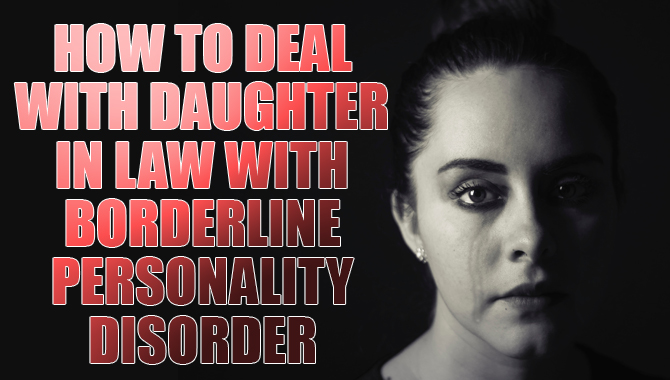Knowing how to support your partner best can be difficult if your partner is struggling with addiction. Here are some tips on how to handle a partner’s addiction:
- Be patient and understanding. Addiction is a disease; like any other chronic illness, it can take time to overcome. Be prepared for setbacks and relapses, and try to be understanding when they happen.
- Be supportive but not enabling. It’s important to support your partner’s recovery efforts, but you shouldn’t enable their addiction by enabling their behaviors. For example, if they’re addicted to alcohol, don’t buy them alcohol or keep it in the house.
- Help them find treatment. If your partner is ready to seek treatment for their addiction, help them find a reputable treatment center or therapist. They must receive professional help to recover.
- Take care of yourself. Taking care of yourself while your partner is struggling with addiction is also important. Make sure to schedule time for yourself and your hobbies and interests. It’s okay to take a break from supporting your partner if necessary.
- Seek professional help. If you struggle to cope with your partner’s addiction, seek professional help. A therapist can help you manage your emotions and guide you on best supporting your partner.

What Are Some Signs That Your Partner May Be Addicted To Something?

If you suspect your partner may be addicted to something, there are some tell-tale signs to look out for. Here are some examples:
1.They’re Always Preoccupied With Their Substance Of Choice
If your partner can’t seem to go an hour without using their drug of choice, or if they’re always talking about it, thinking about it, or planning their next fix, it’s a sign that they’re addicted.
2.They’re Neglecting Their Responsibilities
Addiction can cause people to lose interest in the things they used to care about. If your partner suddenly neglects their work, school, or family obligations to use drugs, it’s a sign that they’re struggling with addiction.
3.They’re Engaging In Risky Behavior
People addicted to drugs often take risks they wouldn’t normally take to get their fix. If your partner suddenly engages in risky behavior, like driving while under the influence, it’s a sign that their addiction is out of control.
4.They Withdraw From Friends And Family
People addicted to drugs often start to withdraw from the people they love. If your partner is suddenly pulling away from you or isolating themselves from friends and family, it’s a sign that their addiction is taking over their life.
If you see any of these signs in your partner, reaching out for help is important. Addiction is a serious disease that can destroy lives. If you suspect your partner may be addicted to something, don’t hesitate to contact a professional for help.
What Are Some Ways To Approach Your Partner About Their Addiction?

If you’re concerned about your partner’s addiction, it’s important to approach the situation in a way that is respectful and non-judgmental. Here are a few tips:
- Avoid ultimatums or threats. This will only make your partner defensive and less likely to be open to hearing your concerns.
- Try to have a calm, rational conversation. It’s important to express your concerns and why you’re worried about the addiction.
- Listen to what your partner has to say. Addiction is a complex issue, and trying to understand your partner’s perspective is important.
- Avoid enabling behavior. This includes things like making excuses for your partner’s behavior or covering up for them.
- Offer support and understanding. Addiction is a difficult issue, and your partner will need all the support they can get.
If you’re unsure how to approach your partner about their addiction, you may want to seek professional help. A counselor or therapist can provide guidance and support.
What Are Some Resources Available To Help Your Partner Overcome Their Addiction?

If your partner is struggling with addiction, you probably feel a range of emotions, including anger, fear, helplessness, and sadness. You may wonder how to help your partner overcome their addiction. Here are some resources that may be helpful:
- Al-Anon or Nar-Anon: These are support groups for family and friends of addicts. Attending meetings can help you to feel less alone and to learn how to support your loved one best.
- Individual or couples therapy: Talking with a therapist can help you understand your partner’s addiction and how it impacts your relationship. It can also provide a space to work through any unresolved issues.
- Twelve-step programs: These programs, such as Alcoholics Anonymous or Narcotics Anonymous, can provide support and structure for recovery.
- Rehab: Inpatient or outpatient treatment programs can give your partner the tools to overcome addiction.
- sober living: Sober living homes can provide a safe and supportive environment for recovery.
Many resources are available if you are wondering what you can do to help your partner overcome their addiction. Please talk with your partner about what might be helpful for them and look into the available options.
How Can You Support Your Partner As They Recover From Addiction?

If your partner is struggling with addiction, knowing how to support them can be difficult. It’s important to remember that recovery is a process, and there will be ups and downs. Here are some tips on how you can support your partner as they recover from addiction:
1.Be There For Them
Let them know that you are there for them, no matter what. This can be difficult for them, and they may need your support more than ever.
2.Be Patient
Recovery is a process, and it can take time. Be patient with your partner and try to be understanding.
3.Encourage Them
Encourage your partner to stay on track with their recovery. Let them know that you believe in them and that they can do it.
4.Help Them Stay Accountable
One of the best ways to support your partner is by helping them stay accountable. This may mean attending appointments with them, helping them stay away from triggers, or being there for them when they need to talk.
5.Be A Listening Ear
Sometimes, your partner needs to talk. Be a listening ear and let them know that you are there for them. Recovery from addiction is a difficult journey, but you can greatly support your partner. Just be there for them, be patient, and help them stay accountable.
What Are Some Things To Consider If You Are Considering Ending A Relationship With A Partner Who Is Addicted To Something?
If you are considering ending a relationship with a partner addicted to something, there are a few things to consider. First, consider, How the addiction is impacting your relationship. Is it causing arguments? Is it preventing your partner from being able to participate in activities that you enjoy together?
Second, consider, How the addiction is impacting your partner. Is it causing them financial problems? Is it causing them physical problems? Third, consider, How would you feel if you ended the relationship? Would you be able to move on? Would you be able to find someone else?
Fourth, consider-How would your partner feel if you ended the relationship? Would they be able to move on? Would they be able to find someone else? Finally, consider-How ending the relationship would impact your future. Would it make it more difficult to find a partner in the future? Would it make it more difficult to have a successful relationship in the future?
These are just a few things to consider if you are considering ending a relationship with a partner who is addicted to something. I hope this has helped clear things up. Please comment below if you still have any questions about handling a partner’s addiction.






